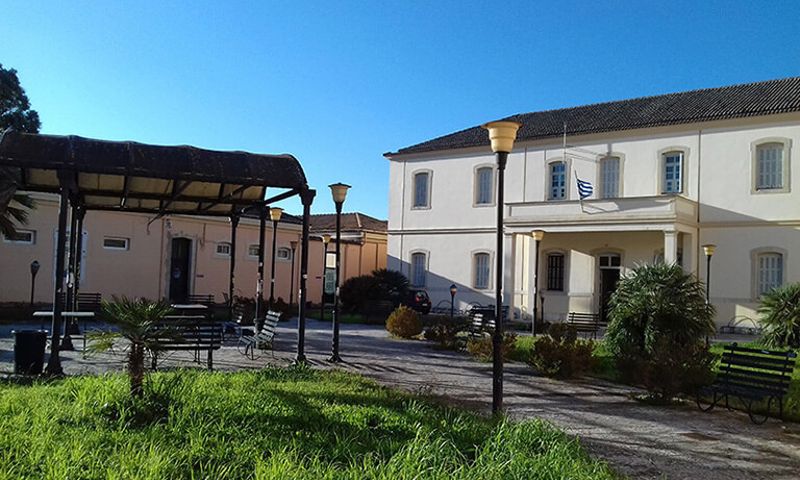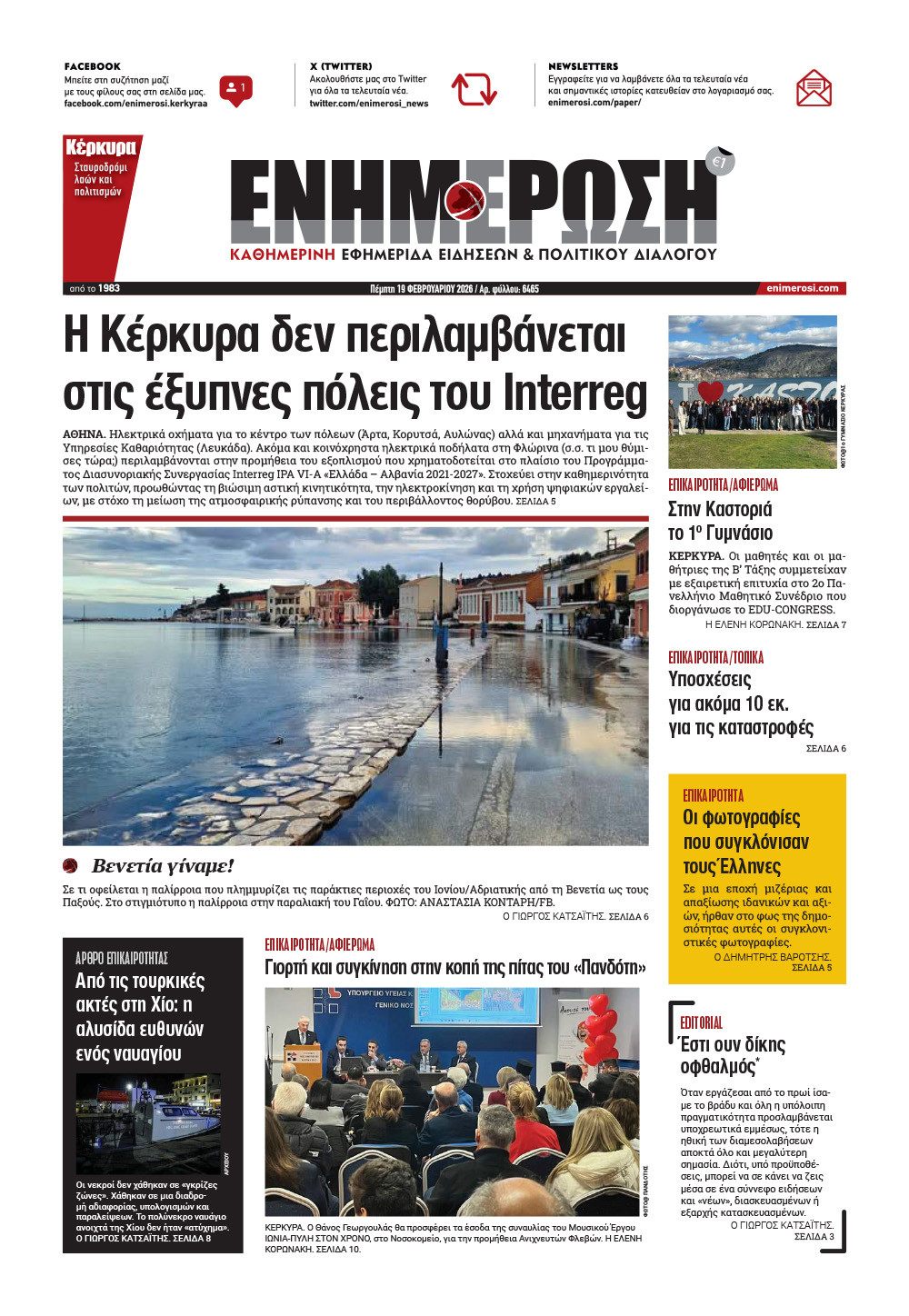Persian language courses at Ionian University Department of Foreign Languages, Translation & Interpreting

Ionian University
11 Feb 2022
/ 17:10
CORFU. More memoranda of cooperation will follow with Portuguese and Russian.
Ionian University students will be given the opportunity to learn Persian, also known as Farsi. Although the teaching of Farsi is not common in our country, the Department of Foreign Languages, Translation and Interpreting (DFLTI) – the only University Department in Greece offering high-quality undergraduate and postgraduate studies in translation and interpreting – decided to further broaden its horizons.
The courses will start at the beginning of the spring semester, in the framework of the Memorandum of Scientific and Cultural Cooperation signed between DFLTI and the Cultural Centre of the Embassy of the Islamic Republic of Iran for a four-year renewable period.
What it includes
The agreement includes the following:
- Distance learning courses of Farsi language (by a Greek-speaking teacher paid by the Embassy)
- Provision of educational material
- Organisation of workshops, conferences, exhibitions and cultural and artistic events
- Scientific cooperation in fields of mutual interest
- Publication of scientific and academic books and articles on subjects that will be approved by both parties
- Scholarship programme for Greek-speaking translators and interpreters, DFLTI graduates who will be able to work in Iran
An asset
Persian is an Indo-European language spoken in Iran, Afghanistan, Tajikistan, Uzbekistan, Bahrain, Iraq, Azerbaijan, Armenia, Georgia, southern Russia, neighbouring countries and elsewhere. It is a continuation of Old Persian and belongs to the Iranian branch of the Indo-Iranian subdivision of the Indo-European languages.
Due to the immigration issue, this language is an asset for anyone who knows it. “The courses will be in the form of a seminar and can be attended by any student of the Department. There is already an increased interest, even though it is a difficult language with a different alphabet,” the DFLTI Head Sotiris Livas told Enimerosi.
By the end of the courses, students will have acquired basic grammatical knowledge and will know basic vocabulary that will allow them to communicate in basic conversations.
More to follow
As Mr. Livas pointed out, similar memoranda of cooperation are expected to follow with other Embassies, such as Brazil and Russia, for Portuguese and Russian language courses. The languages currently taught in the Department are English, German and French, as well as Turkish, Spanish and Italian as third languages.
The courses will start at the beginning of the spring semester, in the framework of the Memorandum of Scientific and Cultural Cooperation signed between DFLTI and the Cultural Centre of the Embassy of the Islamic Republic of Iran for a four-year renewable period.
What it includes
The agreement includes the following:
- Distance learning courses of Farsi language (by a Greek-speaking teacher paid by the Embassy)
- Provision of educational material
- Organisation of workshops, conferences, exhibitions and cultural and artistic events
- Scientific cooperation in fields of mutual interest
- Publication of scientific and academic books and articles on subjects that will be approved by both parties
- Scholarship programme for Greek-speaking translators and interpreters, DFLTI graduates who will be able to work in Iran
An asset
Persian is an Indo-European language spoken in Iran, Afghanistan, Tajikistan, Uzbekistan, Bahrain, Iraq, Azerbaijan, Armenia, Georgia, southern Russia, neighbouring countries and elsewhere. It is a continuation of Old Persian and belongs to the Iranian branch of the Indo-Iranian subdivision of the Indo-European languages.
Due to the immigration issue, this language is an asset for anyone who knows it. “The courses will be in the form of a seminar and can be attended by any student of the Department. There is already an increased interest, even though it is a difficult language with a different alphabet,” the DFLTI Head Sotiris Livas told Enimerosi.
By the end of the courses, students will have acquired basic grammatical knowledge and will know basic vocabulary that will allow them to communicate in basic conversations.
More to follow
As Mr. Livas pointed out, similar memoranda of cooperation are expected to follow with other Embassies, such as Brazil and Russia, for Portuguese and Russian language courses. The languages currently taught in the Department are English, German and French, as well as Turkish, Spanish and Italian as third languages.












